Celebrity
Discovering Hjalmar Rechlin: The Silent Chronicler of Swedish War History
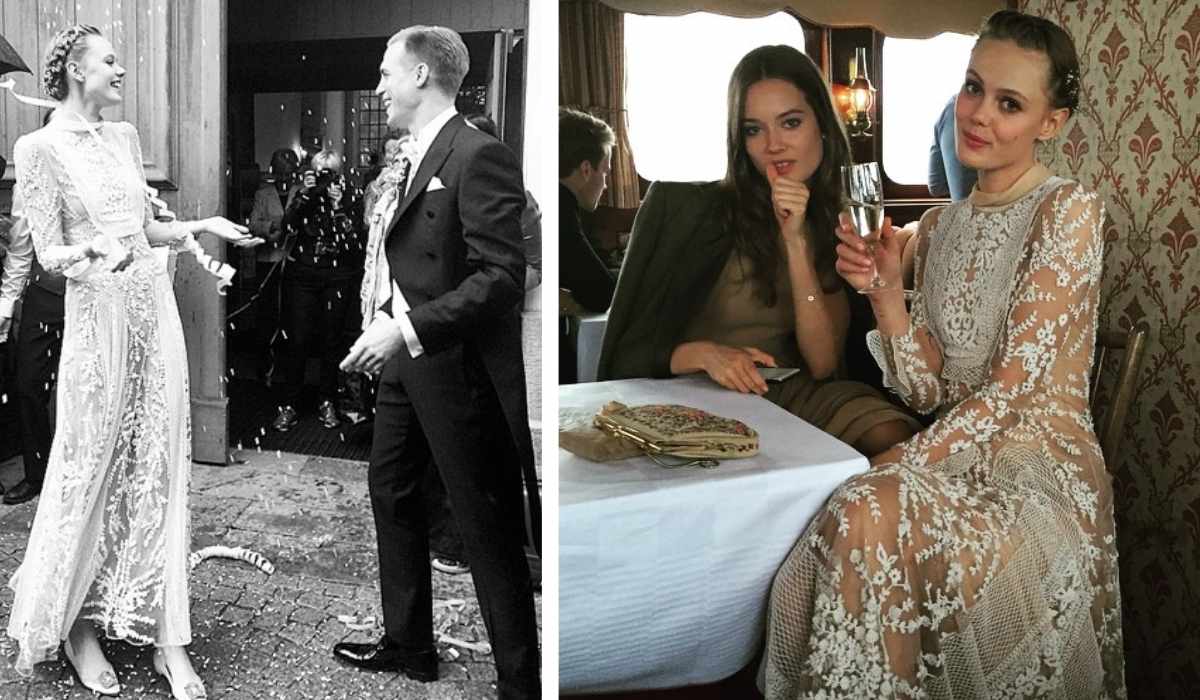
In the vast tapestry of military history and visual documentation, certain names rise to prominence while others fade into the background, their legacies obscured by time. One such figure is Hjalmar Rechlin, a Swedish military officer and accomplished photographer whose contributions to both the Swedish military and historical preservation deserve a brighter spotlight. Although not a household name, Rechlin’s life and work are deeply intertwined with the evolution of military documentation in early 20th-century Sweden. This article seeks to uncover the life, achievements, and quiet influence of Hjalmar Rechlin, showcasing why his legacy matters today.
Quick Bio
| Attribute | Details |
| Name | Hjalmar Rechlin |
| Profession | Swedish photographer |
| Gender | Male |
| Ex-wife | Frida Gustavsson |
| Marriage Year | 2015 |
| Divorce Year | 2017 |
| Age Range | 30-35 (estimated based on appearance) |
| @hjalmar.rechlin | |
| Website | hjalmarrechlin.se |
| Net Worth 2023 | Estimated between $100,000 and $300,000 |
Early Life and Military Foundations
Born in 1896 in Sweden, Hjalmar Rechlin entered a world undergoing rapid transformation. The 19th century had seen industrial advancements, and by the time Rechlin was a young man, the looming threat of global conflict hung in the air. His early years were shaped by the traditional Swedish educational system, which, during that time, placed a strong emphasis on discipline, national pride, and military preparedness. Rechlin’s interest in military service was kindled in his youth, and he eventually joined the Swedish Armed Forces.
Though Sweden remained neutral in both World Wars, its military maintained a state of preparedness, particularly during the interwar period and WWII. It was during this time that Rechlin carved out a unique niche for himself—not just as a soldier, but as someone who observed, documented, and analyzed military structures with a deep sense of purpose.
A Passion for Documentation: Photography and Strategy
Hjalmar Rechlin wasn’t content with simply serving in the ranks. His passion extended beyond drills and formations. He had a keen eye for detail, composition, and historical preservation, which led him to adopt photography as a crucial part of his professional life. Long before smartphones and digital cameras, Rechlin mastered the craft of analog photography, lugging heavy equipment to various training grounds, military installations, and state events. His goal was to capture the essence of Sweden’s military landscape—not just for reports, but for the historical record.
His photographs were not mere snapshots; they were carefully composed visual documents that conveyed strategy, architecture, logistics, and emotion. From images of Swedish bunkers to the faces of young recruits, his lens recorded the silent narratives behind military operations. It was this dual role—as a soldier and a documentarian—that set Rechlin apart.
Bridging Art and Military History
Rechlin’s work goes beyond typical military photography. There was a certain artistry in how he captured the everyday routines and rigid structures of army life. Many of his photographs demonstrate a deep understanding of lighting, angle, and context—elements that elevate his work from pure documentation to artistic preservation. At a time when the world was consumed by war and destruction, Rechlin found beauty and meaning in discipline, uniformity, and the preparedness of a nation.
He also contributed to several military publications and reports, often supplementing them with visual materials. His writings suggest a man who was equally comfortable with the pen and the camera, and who saw both as tools for conveying complex ideas in accessible forms.
The Role of Sweden’s Neutrality
To understand Hjalmar Rechlin’s contributions, one must also grasp the context of Sweden’s neutrality. Throughout the two world wars, Sweden chose not to engage in active combat. However, this did not mean its military remained idle. On the contrary, the nation invested heavily in defense and internal security, always preparing for the possibility of being drawn into the conflict. Rechlin played a crucial role during this period by visually cataloging Sweden’s military preparedness.
His work provided the Swedish government with essential insights into the strengths and weaknesses of its defense infrastructure. His images and reports helped in making decisions regarding fortifications, troop distribution, and resource allocation. While not often in the limelight, Rechlin was among the silent architects of Sweden’s internal stability during global chaos.
Contributions to Military Archives and Education
One of Rechlin’s most enduring contributions was his dedication to archiving. He believed that military history was not just about battles and treaties—it was also about preparation, evolution, and structure. His photographs and notes became part of Sweden’s military archives, where they are still referenced by historians, defense analysts, and researchers.
Moreover, Rechlin played a mentoring role to younger officers and cadets. Through lectures, training manuals, and visual guides, he passed on not only tactical knowledge but also the importance of observation and critical thinking. His emphasis on combining visual documentation with strategic planning marked a progressive approach to military education in mid-20th century Sweden.
Life Beyond the Uniform
Though his professional identity was strongly tied to the military, Hjalmar Rechlin was also a private individual with a love for Sweden’s natural landscapes, literature, and art. He was known to take long walks in the countryside, camera in hand, capturing scenes of rural Sweden. His non-military photographs reflect a peaceful and contemplative side of his personality—a stark contrast to the rigidity of army life.
This duality—of discipline and sensitivity—defined Rechlin’s character. He balanced duty with creativity, blending the technical with the aesthetic. For this reason, his legacy extends beyond military circles. He is also admired by Swedish photography historians and cultural scholars who see in his work a unique window into Sweden’s 20th-century identity.
Legacy and Recognition
Despite his significant contributions, Hjalmar Rechlin remains relatively obscure in public memory. Unlike generals or political leaders, his work was behind the scenes. Yet, his influence persists. In recent years, efforts have been made by Swedish museums and military institutions to digitize and showcase his photography, bringing new attention to his meticulous work.
Exhibitions featuring his work have been displayed in Stockholm and other Swedish cities, and academic papers have highlighted his methods of visual communication. His photographs are now considered invaluable records of Sweden’s defense development during a pivotal era. In this way, Rechlin is finally receiving the recognition he deserves—not as a celebrity or war hero, but as a quiet visionary.
Why Hjalmar Rechlin Matters Today
In a time when digital images flood our lives, Hjalmar Rechlin’s story reminds us of the power of intention and purpose in visual storytelling. His work serves as a model for how photography can be both functional and meaningful. For those interested in military history, Rechlin offers insights into Sweden’s unique stance during global conflicts. For photographers and artists, his compositions show how structure and emotion can coexist within a single frame.
His life also challenges us to reconsider what constitutes historical significance. While he may not have led troops or signed treaties, his impact is felt in the archives, in the minds of strategists, and in the carefully preserved images of a nation at the ready.
Conclusion: The Quiet Power of Legacy
Hjalmar Rechlin may not be a name that commands instant recognition, but his work tells a story far louder than words. Through his camera and his disciplined eye, he captured a Sweden most people never saw—a country cautious, prepared, and profoundly introspective during some of the most uncertain times in modern history. His legacy, once at risk of fading into obscurity, now shines through the glass of archival photographs and the pages of military history. And for those who take the time to look, his story offers a rich and rewarding exploration of duty, art, and historical awareness.
Frequently Asked Questions (FAQs)
1. Who was Hjalmar Rechlin?
Hjalmar Rechlin was a Swedish military officer and photographer known for documenting Sweden’s military infrastructure and strategy during the early to mid-20th century.
2. Why is Hjalmar Rechlin important in Swedish history?
Rechlin played a key role in visually documenting Sweden’s military preparedness during both world wars, contributing to military archives and strategic planning.
3. Was Hjalmar Rechlin involved in combat?
Sweden maintained neutrality during both world wars, so Rechlin was not involved in combat but served as a strategist and documentarian within the military.
4. Are Hjalmar Rechlin’s photographs available to the public?
Yes, many of his works have been digitized and are occasionally featured in museum exhibits and military history archives in Sweden.
5. What made Hjalmar Rechlin’s photography unique?
Rechlin combined military precision with artistic vision, capturing detailed, composed images that served both strategic and historical purposes.
Celebrity
Who Is Haley Arnaz? All You Need to Know About Desi Arnaz Jr.’s Daughter
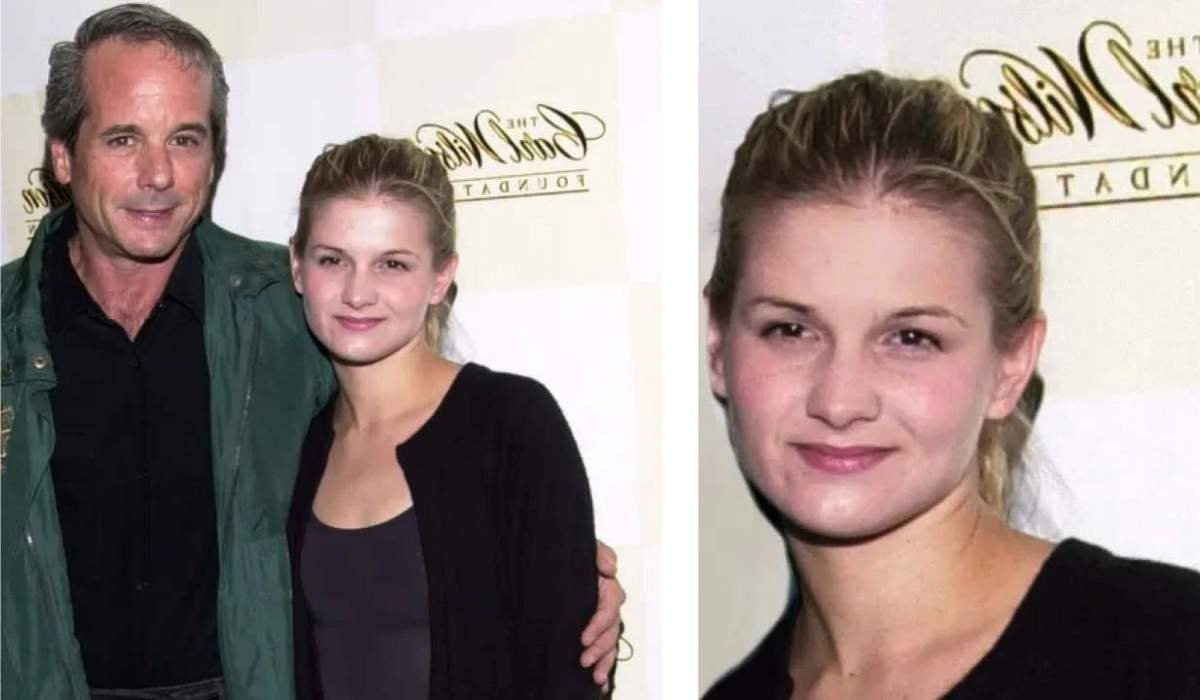
Haley Arnaz is a name that sparks curiosity because of her connection to one of Hollywood’s most iconic families. She is the daughter of Desi Arnaz Jr., an actor and musician who followed in the footsteps of his legendary parents. While she hasn’t pursued a highly public career, people remain interested in her life and background. Growing up in a family tied to show business, Haley experienced a world that many only see on screen, yet she has largely chosen to keep her personal life private. This decision has only fueled interest in who she is and what she does.
Quick Bio of Haley Arnaz
| Detail | Information |
|---|---|
| Name | Haley Arnaz |
| Father | Desi Arnaz Jr. |
| Grandparents | Desi Arnaz, Lucille Ball |
| Profession | Private/Not Publicly Known |
| Public Presence | Minimal |
| Known For | Family Legacy |
Family Background of Haley Arnaz
To understand Haley Arnaz, it is important to look at her family roots. She belongs to the famous Arnaz and Ball family, a name deeply embedded in entertainment history. Her father, Desi Arnaz Jr., is the son of legendary stars. His parents, Desi Arnaz and Lucille Ball, created television history with the groundbreaking show I Love Lucy. That series changed sitcoms forever and remains beloved by audiences.
Because of this heritage, Haley carries a legacy that is admired by many. However, unlike her famous grandparents and father, she has not sought the spotlight. Instead, she has maintained a quieter lifestyle, focusing on personal growth and family. This choice sets her apart from many celebrity relatives who pursue careers in entertainment.
Early Life and Upbringing of Haley Arnaz
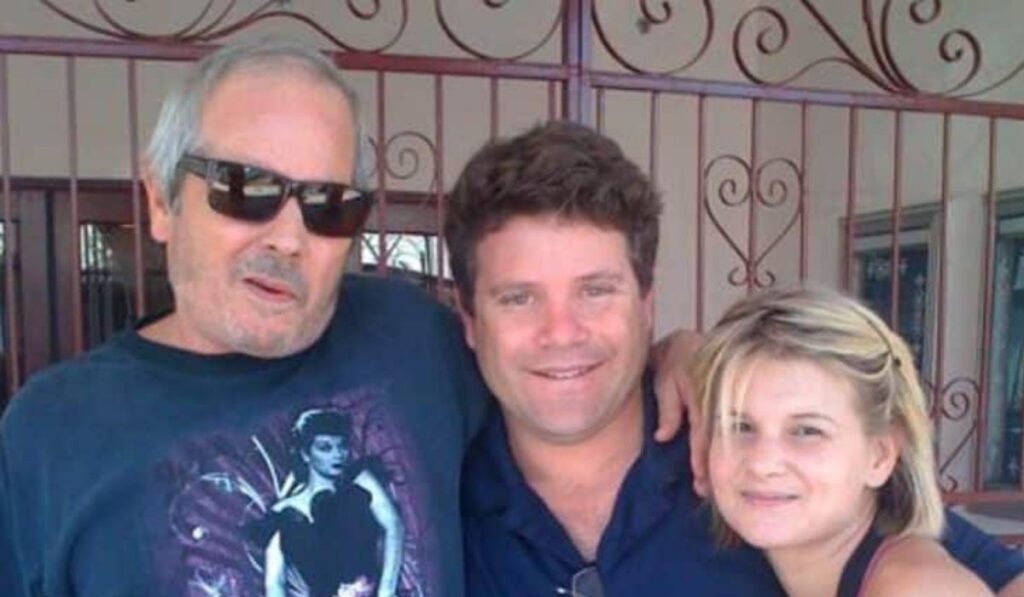
Growing up as the child of Desi Arnaz Jr., Haley was surrounded by stories of Hollywood and performance. Her father experienced fame from an early age, and that environment likely influenced her perspective on public life. While details about her childhood remain limited, it is clear that she was raised with an understanding of her family’s historical significance.
Despite this background, Haley Arnaz has chosen not to become a public figure in the traditional sense. Many children of celebrities enter the entertainment industry, but she appears to have taken a different path. This decision highlights her desire for privacy and independence.
Relationship With Her Father, Desi Arnaz Jr.
The bond between Haley Arnaz and her father, Desi Arnaz Jr., is a topic of interest for many fans. While they share a connection through their family name, public information about their relationship remains limited. It is known that Desi Arnaz Jr. has spoken about family and legacy in various interviews, but details about his daughter’s personal life are scarce.
This level of privacy suggests that Haley values keeping her relationships away from media attention. In an era where social media often exposes personal details, her choice to remain private is notable.
Public Interest in Haley Arnaz
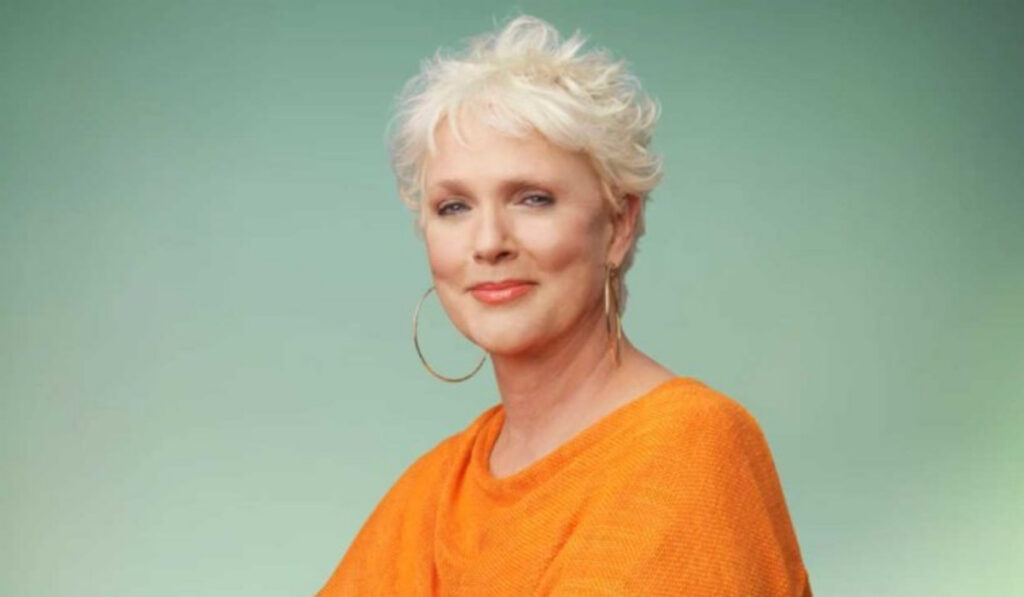
Why do people continue to search for information about Haley Arnaz? The answer lies in her family history. The Arnaz and Ball legacy is one of the most significant in television history, and fans remain fascinated by the descendants of those icons. Even though Haley herself is not a public entertainer, her connection to that legacy keeps interest alive.
Many individuals want to know whether she has followed in her family’s footsteps or pursued a different career. However, because she has maintained a low profile, concrete details are limited. This has led to speculation and curiosity, but it also highlights her ability to live outside the spotlight.
Career and Personal Life of Haley Arnaz
Unlike some celebrity children, Haley Arnaz has not publicly pursued acting, music, or other entertainment careers. Information about her professional life is scarce, which suggests that she values privacy. Many people admire this choice, as it allows her to define success on her own terms.
It is also possible that she works in a field unrelated to show business. Children of famous parents often choose careers outside of entertainment to create their own identities. If this is the case for Haley, it demonstrates her independence and desire to shape her own future.
Legacy and Connection to Hollywood
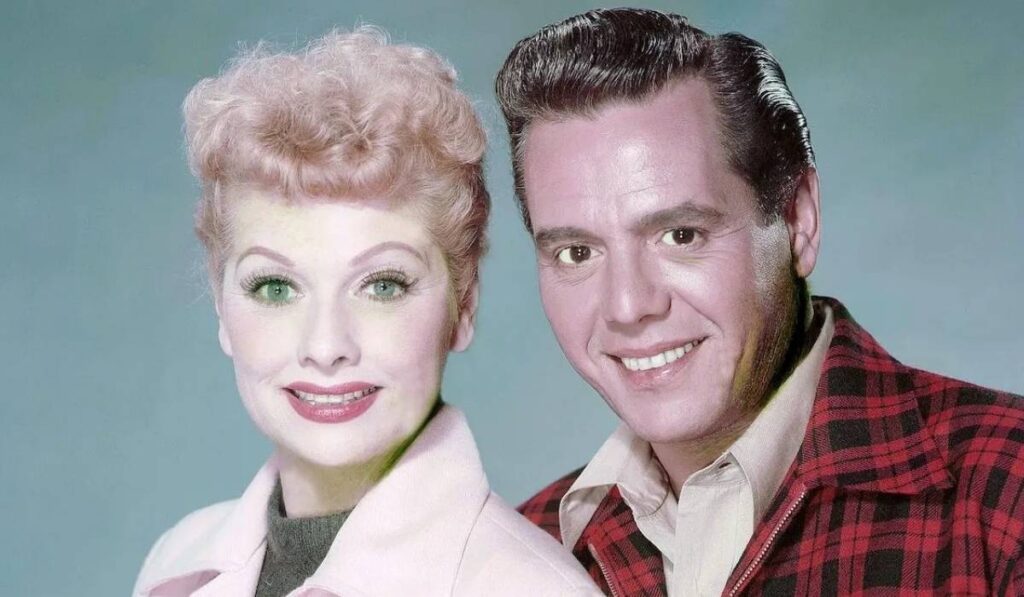
Even though Haley Arnaz is not a household name, her connection to Hollywood history remains significant. Through her father and grandparents, she is part of a family that changed television. The success of I Love Lucy influenced sitcoms for decades, and the impact of that show continues today.
However, legacy does not require public fame. Haley Arnaz represents a modern example of someone who carries historical significance without seeking constant attention. This balance allows her to honor her family’s past while building her own life.
Why Privacy Matters for Haley Arnaz
In today’s digital world, privacy can be difficult to maintain. Many public figures share details of their lives online, but Haley Arnaz appears to take a different approach. By staying out of the spotlight, she protects her personal space and relationships.
This decision is understandable. Not everyone wants to live under public scrutiny, and privacy can lead to a more grounded and fulfilling life. For Haley Arnaz, focusing on personal happiness rather than public recognition may be the best choice.
What We Can Learn From Haley Arnaz
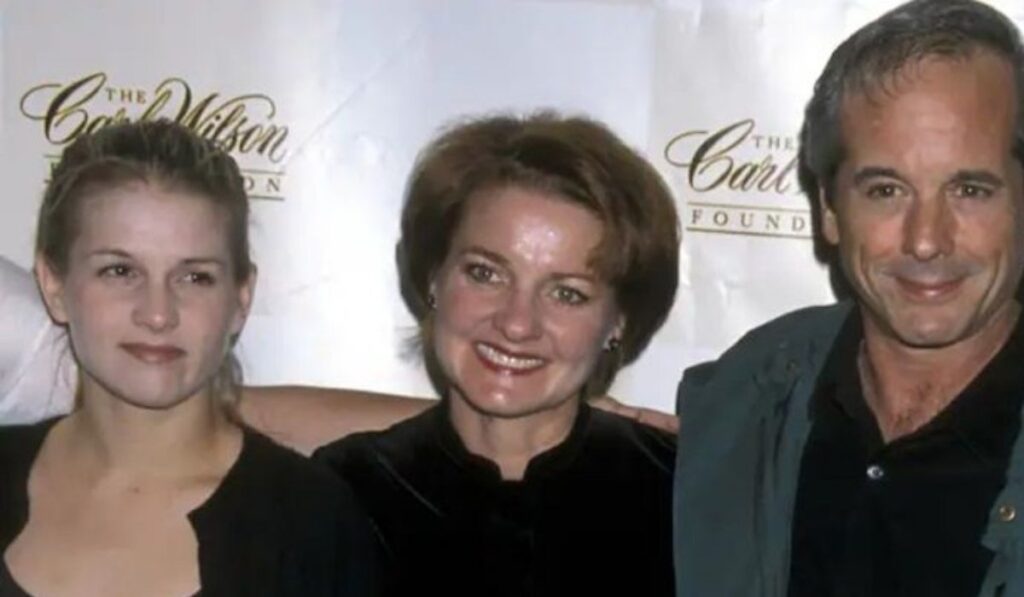
The story of Haley Arnaz teaches an important lesson: fame is not the only measure of success. While her family name carries historical weight, she has chosen a path that prioritizes privacy and individuality. This reminds us that people can contribute to the world in many ways, even if they are not constantly in the public eye.
Her example also highlights the value of respecting boundaries. Just because someone is connected to a famous family does not mean their life should be open for public discussion. Understanding and respecting privacy is essential in a media-driven world.
Conclusion About Haley Arnaz
Haley Arnaz remains a fascinating figure because of her family background and personal choices. As the daughter of Desi Arnaz Jr., she is linked to one of Hollywood’s most influential legacies, yet she has chosen to live outside the spotlight. This decision reflects her desire for a private and independent life.
While information about her remains limited, interest in Haley Arnaz continues because of her connection to entertainment history. Ultimately, she represents a modern example of how individuals can honor their heritage while defining their own paths.
FAQs About Haley Arnaz
1. Who is Haley Arnaz?
✔ She is the daughter of Desi Arnaz Jr. and part of a famous Hollywood family.
2. Is Haley Arnaz an actress?
✔ No, she has not pursued a public career in acting.
3. What is the connection between Haley Arnaz and I Love Lucy?
✔ Her grandparents, Desi Arnaz and Lucille Ball, starred in the legendary show.
4. Why is there limited information about Haley Arnaz?
✔ She values privacy and keeps her personal life away from the public eye.
5. Is Haley Arnaz involved in entertainment?
✔ There is no public evidence that she works in show business.
Celebrity
Who is Michael Tell? The Untold Story of Patty Duke’s Ex-Husband
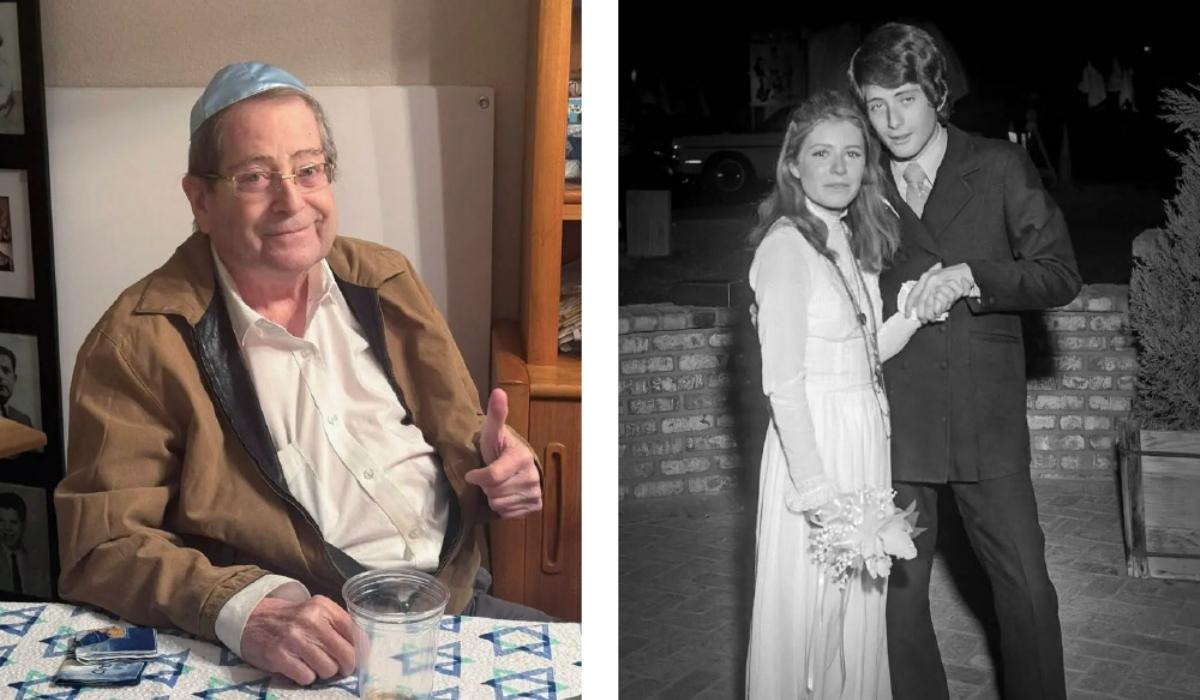
Michael Tell is a relatively obscure figure in Hollywood history, known primarily for his brief and controversial marriage to Patty Duke (American actress). Little is documented about his childhood or early career, which adds to the mystery surrounding his life. Reports suggest that he was involved in the music industry and worked as a promoter, but concrete details remain scarce. Unlike many Hollywood spouses who embrace the spotlight, Michael Tell largely stayed away from public attention, making it difficult to trace his professional journey.
His background before meeting Patty Duke is often described in fragments. Some sources claim he had connections to the entertainment world, while others suggest he was a businessman with no direct ties to Hollywood. This lack of clarity has fueled speculation about who he really was and what role he played in Duke’s life. Despite the uncertainty, his name remains linked to one of the most intriguing relationships in celebrity history.
Quick Bio of Michael Tell
| Detail | Information |
|---|---|
| Full Name | Michael Tell |
| Known For | Brief marriage to Patty Duke |
| Profession | Music promoter (reported) |
| Marriage Duration | Approximately 13 days |
| Public Presence | Minimal |
| Current Status | Private life |
Michael Tell’s Connection to Hollywood
Although Michael Tell never achieved fame as an actor or entertainer, his association with Hollywood came through his marriage to Patty Duke. Duke, a celebrated actress known for her Oscar-winning performance in The Miracle Worker, had a tumultuous personal life. Her relationship with Tell was brief, lasting only about 13 days, yet it became a subject of media fascination.
The marriage itself was surrounded by controversy. Duke later claimed that the union was impulsive and motivated by personal struggles. Some reports indicate that the marriage was never consummated and that it was annulled shortly after it began. This short-lived relationship left many questions unanswered, particularly regarding Tell’s intentions and role in Duke’s life.
The Controversial Marriage
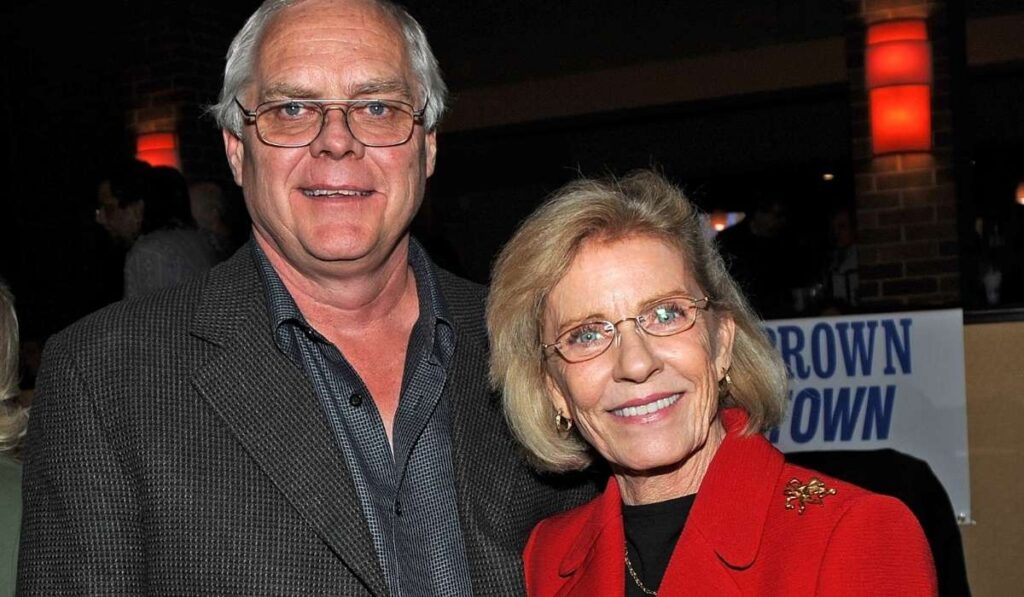
One of the most discussed aspects of Michael Tell’s life is his marriage to Patty Duke. The union, which took place in 1970, was reportedly an impulsive decision. Duke later described the marriage as a way to avoid public scrutiny over her pregnancy, though the paternity of her child remained uncertain for years.
The timing of the marriage raised eyebrows. Duke was pregnant at the time, and there were conflicting reports about whether Tell was the biological father. Eventually, it was revealed that her son, Sean Astin, was not Tell’s child but rather the son of actor John Astin, whom Duke married after the annulment. This revelation added another layer of complexity to the story and further distanced Tell from the public narrative.
Life After the Annulment
Following the annulment of his marriage to Patty Duke, Michael Tell retreated from the public eye. Unlike Duke, who continued to enjoy a successful acting career, Tell remained largely out of the spotlight. There are few verified accounts of his life after the marriage, and he seemingly chose to live a private existence.
This decision to avoid media attention has contributed to the mystery surrounding him. While some former celebrity spouses embrace public life, Tell’s preference for privacy has made it difficult for researchers and journalists to piece together a comprehensive biography. As a result, much of what is known about him comes from secondhand reports and speculation.
The Media’s Role in Shaping His Image
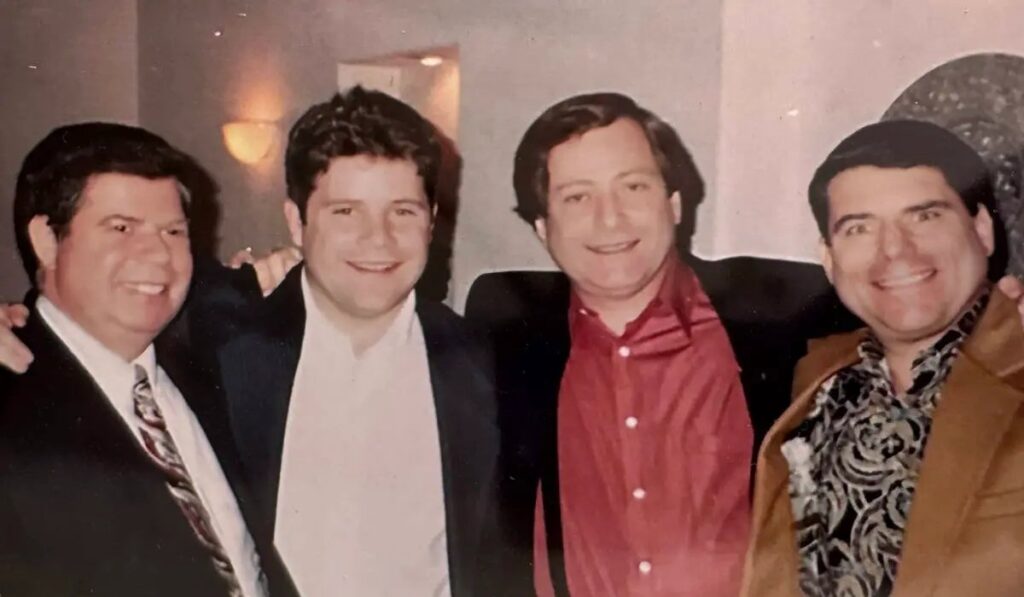
The media played a significant role in shaping the public perception of Michael Tell. Because of his brief marriage to Patty Duke, he became a subject of tabloid coverage. However, unlike Duke, who had an established career and public persona, Tell lacked a media presence of his own.
This disparity influenced how he was portrayed. While Duke’s struggles and achievements were widely documented, Tell was often reduced to a footnote in her story. Headlines focused on the controversy surrounding their marriage rather than exploring his individual identity. Over time, this narrative cemented his reputation as a mysterious and elusive figure.
Michael Tell’s Legacy in Hollywood History
Although Michael Tell never sought fame, his connection to Patty Duke ensures that his name remains part of Hollywood history. His brief marriage to one of the industry’s most beloved actresses continues to intrigue fans and researchers alike. The unanswered questions surrounding their relationship contribute to its enduring fascination.
From a historical perspective, Tell’s story highlights the complexities of celebrity relationships. Public figures often face intense scrutiny, and their personal lives can become subjects of speculation. In the case of Duke and Tell, the rapid dissolution of their marriage only intensified media interest.
Why Michael Tell Remains a Mystery
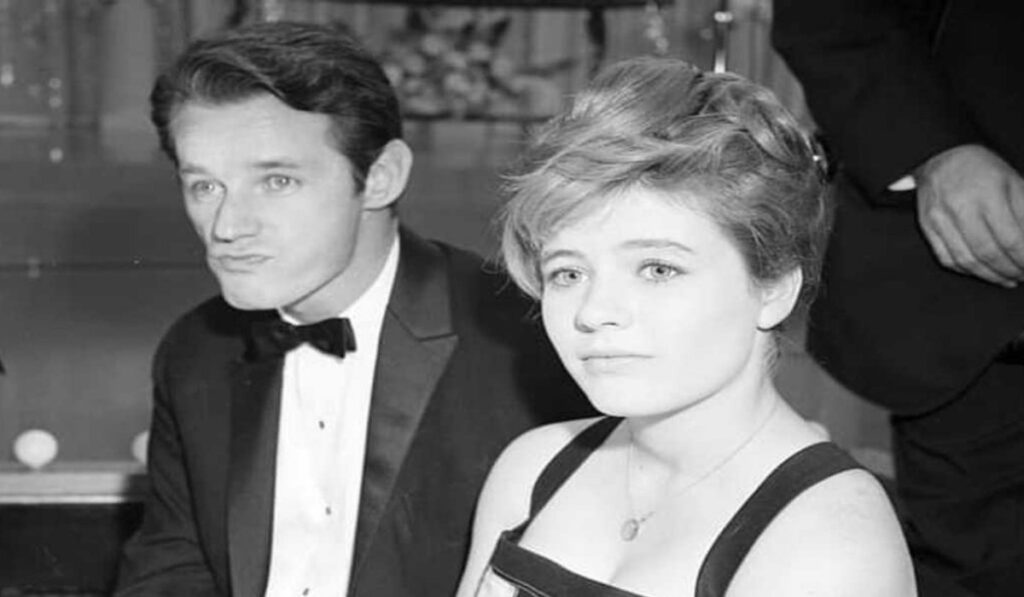
The lack of detailed information about Michael Tell is one of the reasons he remains a mysterious figure. Unlike many individuals connected to Hollywood, he did not leave behind a well-documented career or public record. This absence of information has allowed myths and assumptions to flourish.
Some theories suggest that Tell deliberately avoided the spotlight to protect his privacy. Others argue that the media simply lost interest in him after the annulment. Regardless of the reason, his story serves as a reminder that not every Hollywood connection results in lasting fame.
Lessons from His Story
Michael Tell’s life offers several lessons about the nature of celebrity and public perception. First, it demonstrates that relationships with famous individuals can overshadow personal identity. Tell’s brief marriage to Patty Duke defined his public image, even though he was not a public figure in his own right.
Second, his story underscores the importance of privacy. In an era where personal details are often exposed and scrutinized, Tell’s decision to remain out of the spotlight is notable. It suggests that some individuals prefer to live without media attention, even if it means sacrificing public recognition.
The Enduring Fascination with Michael Tell
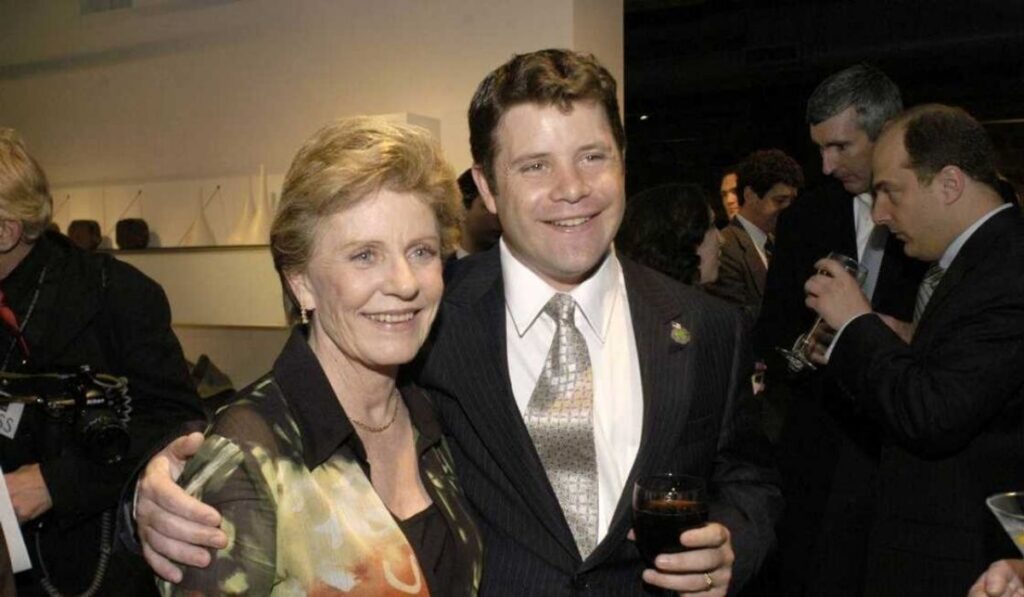
Despite the limited information available, interest in Michael Tell persists. Researchers and fans continue to explore his connection to Patty Duke and the circumstances surrounding their marriage. This enduring fascination speaks to the broader appeal of Hollywood history and the human stories behind celebrity headlines.
While Tell may never achieve the same level of recognition as Duke, his role in her life remains a point of interest. The brief nature of their relationship and the questions it raised ensure that his name will continue to appear in discussions about Hollywood’s past.
Conclusion
Michael Tell’s story is one of mystery and intrigue. Known primarily for his brief marriage to Patty Duke (American actress), he remains an elusive figure with few documented details about his life. His connection to Hollywood history, however, ensures that his name endures.
Whether viewed as a footnote in Duke’s biography or as a subject worthy of independent exploration, Tell’s life invites curiosity. It reminds us that behind every headline lies a deeper story—one that may never be fully understood.
Frequently Asked Questions (FAQs)
1. Who is Michael Tell?
- He is best known as the former husband of Patty Duke.
2. How long was Michael Tell married to Patty Duke?
- About 13 days.
3. Did Michael Tell have children with Patty Duke?
- No.
4. What did Michael Tell do for a living?
- Reportedly a music promoter.
5. Why is Michael Tell so mysterious?
- He avoided public life.
Celebrity
Who Is Sanne Hamers? The Untold Story of Wyatt Russell’s Ex

Sanne Hamers grew up away from the limelight, leading a life shaped by personal ambitions rather than public recognition. Little is known about her early upbringing, but reports suggest she valued privacy and focused on her personal and professional development. Unlike many individuals linked to celebrity culture, she maintained a low profile, allowing her life to unfold outside the constant scrutiny of media attention. This choice reflects a broader preference for normalcy in a world often dominated by fame and public narratives.
Her background remains largely undocumented in mainstream outlets, which is why much of the discussion surrounding her focuses on limited known facts. However, it is important to understand that a lack of public information does not diminish her individuality or significance. People like Sanne Hamers deserve recognition for who they are beyond external associations.
Quick Bio of Sanne Hamers
| Category | Details |
|---|---|
| Name | Sanne Hamers |
| Known For | Past relationship with Wyatt Russell |
| Profession | Not publicly disclosed |
| Nationality | Information not widely available |
| Public Presence | Private individual |
Relationship With Wyatt Russell
The connection between Sanne Hamers and Wyatt Russell brought her name into public discussions. Their relationship, like many high-profile partnerships, attracted media attention, but details about their time together remain scarce. It is widely acknowledged that relationships involving public figures often come with challenges, including privacy concerns and external pressures.
Despite the curiosity surrounding their past, it is essential to approach the subject respectfully. Sanne Hamers is more than a footnote in someone else’s biography. Her experiences reflect the complexities of human relationships, where not every story is meant for public consumption. This perspective encourages a more empathetic understanding of individuals connected to fame.
Life Beyond the Spotlight
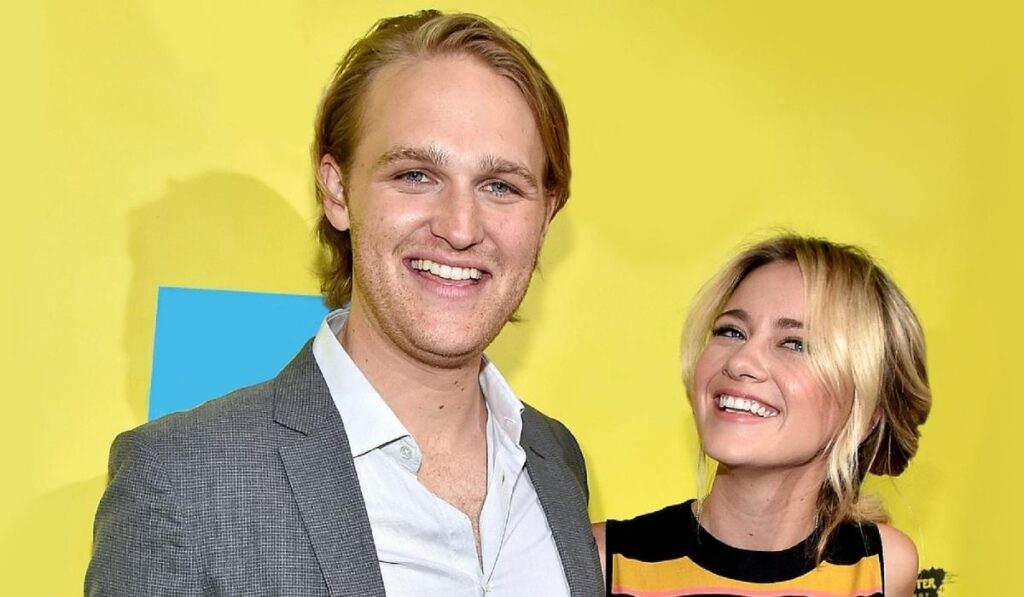
After her relationship with Wyatt Russell, Sanne Hamers chose a path away from public visibility. This decision highlights her preference for a private life, focusing on personal growth and self-discovery. Many individuals linked to celebrities experience similar transitions, seeking to reclaim their identities outside of public narratives.
Living away from the spotlight allows people to define themselves on their own terms. For Sanne Hamers, this likely meant prioritizing personal goals and relationships that were meaningful to her. Such choices deserve respect, as they reflect autonomy and individuality in a world that often demands constant visibility.
Public Perception and Media Narratives
Media narratives can shape public perception in ways that do not always reflect reality. In the case of Sanne Hamers, much of what is discussed stems from limited information and assumptions. This underscores the importance of approaching public figures and their associates with nuance and understanding.
The focus on her past relationship often overshadows other aspects of her life. However, it is crucial to recognize that individuals are multidimensional. Sanne Hamers is not defined solely by her connection to someone famous but by her own experiences and choices.
Privacy in the Age of Information
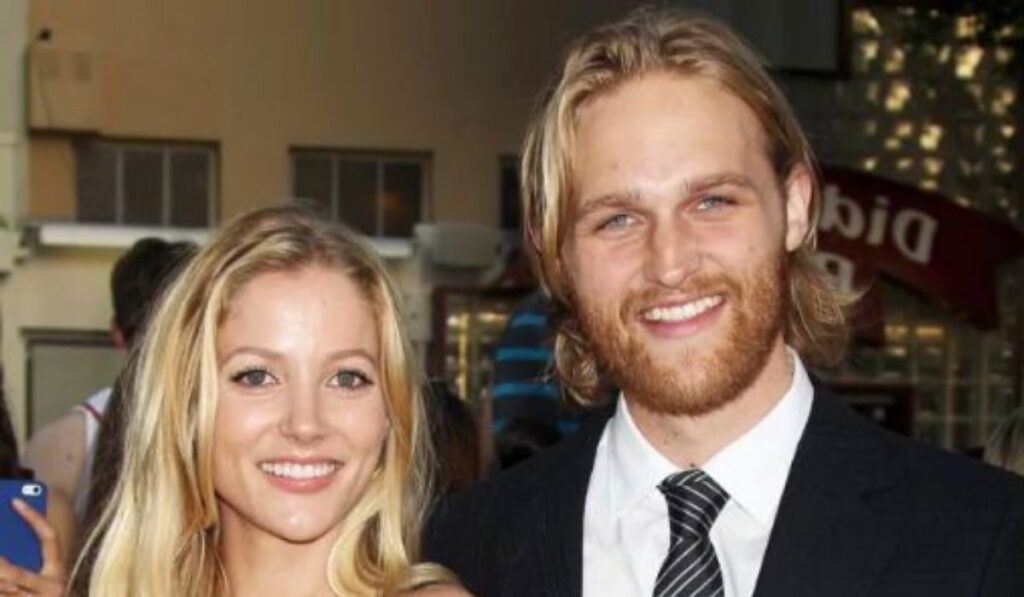
Privacy has become increasingly valuable in an era of digital connectivity and information sharing. For individuals like Sanne Hamers, maintaining boundaries is a way to protect personal well-being. The public’s interest in celebrity culture often blurs these boundaries, raising important questions about ethical storytelling and respect for individual lives.
Respecting privacy does not mean ignoring public interest. Instead, it encourages a balanced approach that acknowledges human dignity. Sanne Hamers’s decision to remain out of the spotlight reflects a broader desire for normalcy in a world where personal lives are frequently scrutinized.
Lessons From Her Story
The story of Sanne Hamers offers valuable lessons about identity and resilience. It reminds us that people are more than their relationships or public associations. Each individual has a unique journey shaped by experiences, choices, and personal growth.
Her example encourages empathy and understanding. Rather than reducing individuals to labels, we should appreciate their complexity. This perspective fosters a more compassionate view of human stories, recognizing the richness of individual lives.
The Importance of Respectful Storytelling
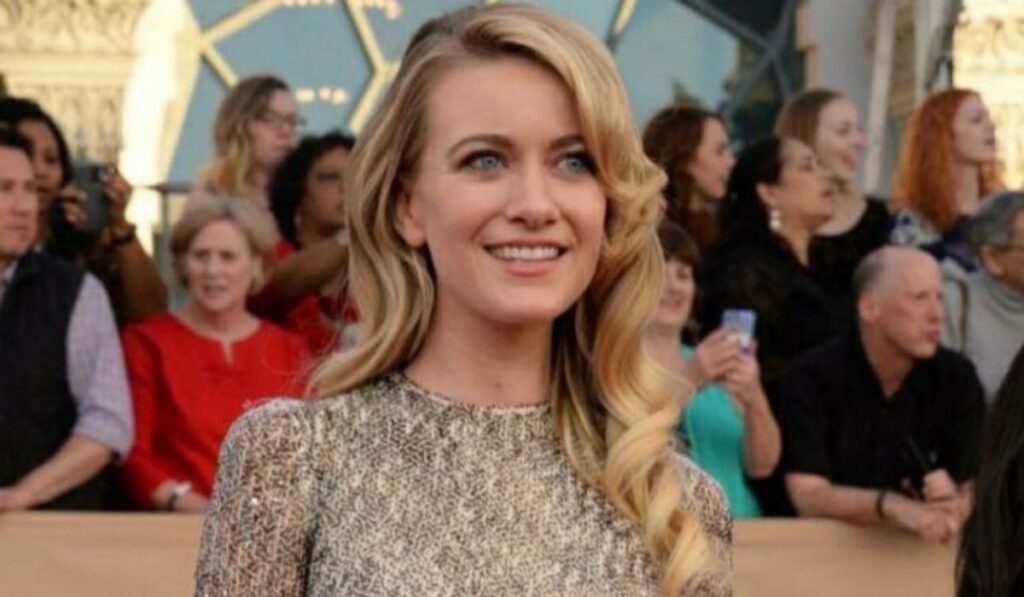
When discussing figures like Sanne Hamers, it is essential to prioritize respectful storytelling. Sensationalism and speculation can distort reality, overshadowing the humanity of the individual. Ethical narratives focus on facts and empathy, avoiding assumptions that may harm reputations.
Respectful storytelling also acknowledges limitations in available information. Not every aspect of a person’s life is public, and that is perfectly acceptable. By honoring these boundaries, we contribute to a culture of understanding and mutual respect.
Why Her Story Matters
The story of Sanne Hamers matters because it reflects broader themes of identity and personal choice. Her decision to live privately highlights the value of autonomy in a world that often demands visibility. It also challenges us to think critically about how we engage with stories of public interest.
Individuals like her remind us that life is multifaceted. Relationships, experiences, and personal growth all contribute to who we are. By appreciating this complexity, we develop a richer understanding of human narratives.
Moving Beyond Labels

Labels can simplify understanding but often fail to capture the full scope of a person’s identity. Sanne Hamers is frequently described in relation to her past, yet this description does not encompass her entire story. Moving beyond labels allows us to recognize individuals as complete and unique human beings.
This perspective encourages a shift in how we discuss public figures and their associates. Rather than focusing solely on associations, we should consider broader contexts and individual experiences. Such an approach promotes empathy and respect.
Conclusion and Final Thoughts
The untold story of Sanne Hamers reminds us of the importance of privacy and individuality. While public interest in celebrity connections is natural, it should not overshadow personal dignity. Her life reflects choices that prioritize self-determination and personal growth.
By exploring her story, we gain insights into broader themes of identity and human experience. Sanne Hamers exemplifies the idea that every individual has a unique journey worth understanding. Respecting that journey enriches our perspective on life and the people within it.
In conclusion, the narrative surrounding her highlights the need for thoughtful engagement with public stories. Empathy and respect should guide our discussions, ensuring that individuals are seen for who they truly are.
FAQ About Sanne Hamers
H4 What is Sanne Hamers known for?
- She is primarily known for her past relationship with Wyatt Russell.
H4 Does Sanne Hamers work in the entertainment industry?
- There is no public information suggesting involvement in entertainment.
H4 Why is there limited information about her?
- She values privacy and maintains a low public profile.
H4 Is Sanne Hamers active on social media?
- There is no widely confirmed public social media presence.
H4 What can we learn from her story?
- Her story emphasizes the importance of privacy and personal identity.






